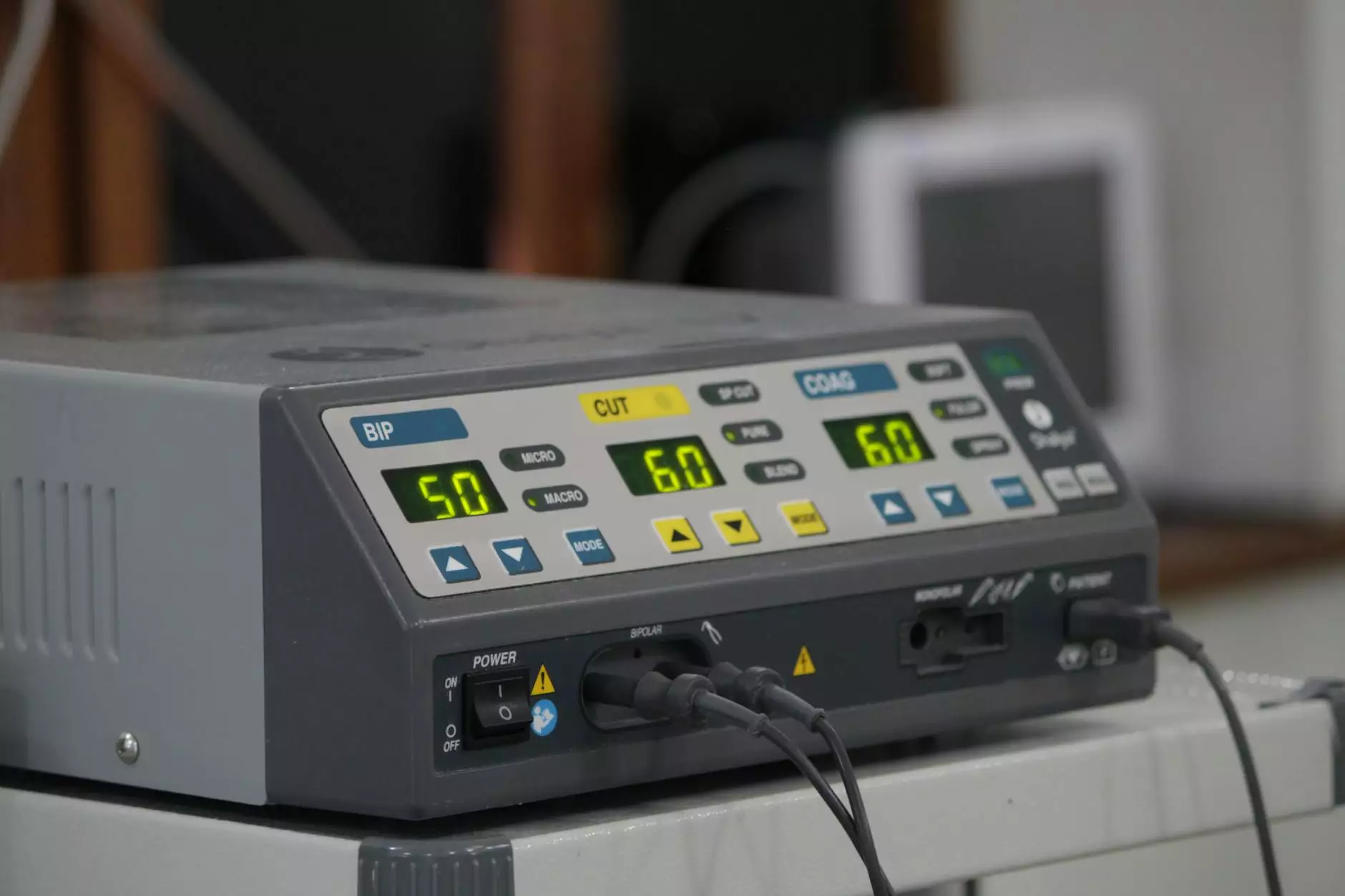The Diesel Engine Generator: Powering Industries Everywhere

In the modern world, where energy demands are ever-increasing, the importance of reliable power sources cannot be overstated. One of the most formidable solutions to meet this demand is the diesel engine generator. This comprehensive guide will delve deep into the workings, applications, benefits, and advantages of diesel engine generators, particularly tailored for businesses and industries.
What is a Diesel Engine Generator?
A diesel engine generator, commonly referred to as a diesel generator, is a type of generator that converts fuel into electrical energy. It typically combines a diesel engine with an electric generator (often an alternator) to produce electricity. The diesel engine serves as the prime mover, which drives the generator to convert mechanical energy into electrical energy.
How Does a Diesel Engine Generator Work?
Understanding the operation of a diesel engine generator involves two primary components: the diesel engine and the generator itself. Here’s a breakdown of how they function together:
- Combustion Process: Diesel fuel is injected into the combustion chamber. As the engine cycles, the fuel ignites due to the heat from compressed air, leading to a power stroke.
- Mechanical Energy Conversion: The power generated from the combustion process rotates the engine's crankshaft. This mechanical energy is essential for generating electricity.
- Electricity Generation: The rotating crankshaft drives the alternator, which converts the mechanical energy into electrical energy through electromagnetic induction.
This simple yet effective method allows the diesel engine generator to provide a constant and reliable source of power, making it suitable for various applications.
Key Applications of Diesel Engine Generators
Diesel engine generators are versatile and can be found in numerous settings and industries. Some common applications include:
1. Industrial Use
Many factories and manufacturing plants rely on diesel generators as a primary or backup power source due to their durability and efficiency. They are particularly useful in environments where power outages can cause significant losses or operational delays.
2. Construction Sites
Construction projects often require substantial energy for machinery and tools. Diesel engine generators are ideal for remote locations without access to the electricity grid. They provide the necessary power for equipment like cranes, mixers, and additional tools needed on-site.
3. Telecommunications
Telecom facilities depend on a continuous power supply to maintain communication services. Diesel generators ensure that there is no downtime during power outages, thus safeguarding telecommunication networks.
4. Hospitals and Emergency Services
In critical settings such as hospitals, reliable electricity is imperative. Diesel generators can act as backup systems, ensuring that life-saving equipment remains operational in the event of a power failure.
5. Marine Applications
The marine industry utilizes diesel engine generators for onboard power generation. These generators provide electrical power for navigation systems, lighting, and crew living spaces.
Benefits of Diesel Engine Generators
The advantages of using diesel engine generators are numerous and contribute significantly to their popularity among businesses. Some of the key benefits include:
- Cost-Effectiveness: Diesel fuel typically costs less than gasoline, making diesel generators more economical over the long term. Moreover, their fuel efficiency enables prolonged operation on less fuel.
- Robustness and Reliability: Known for their durability, diesel generators can operate efficiently in diverse conditions and require less maintenance compared to gasoline generators.
- Higher Power Output: Diesel engines tend to produce more energy compared to comparable gasoline engines, making them suitable for high-demand applications.
- Longevity: With proper maintenance, diesel generators can last for many years, providing consistent performance over time.
Choosing the Right Diesel Engine Generator
Selecting the right diesel engine generator for your business is a critical decision that impacts operational efficiency. Consider the following factors:
1. Power Requirement
Evaluate your power needs by assessing the total wattage of the equipment you intend to run. It's essential to choose a generator that can handle your peak loads efficiently.
2. Fuel Efficiency
Look for generators that provide optimal fuel efficiency. This factor influences your operating costs and impacts the overall performance of the generator.
3. Portability
If you require mobility, consider a diesel generator with portable features or one that fits your specific application. Some generators are designed specifically for transport, while others are more stationary.
4. Noise Levels
Noise pollution can affect work environments and surrounding communities. Look for generators designed with noise-reducing technology to keep sound levels manageable.
5. Brand Reputation and Support
Choose from reputable manufacturers and suppliers that offer reliable customer support and service. A trustworthy provider, such as engine-family.com, ensures you have the right backup when you need it.
Maintenance Tips for Diesel Engine Generators
To maximize the lifespan and performance of your diesel generator, regular maintenance is crucial. Here are some essential maintenance tips:
- Regular Inspections: Conduct routine checks for leaks, loose wires, and other visible signs of wear and tear.
- Change the Oil: Regular oil changes are essential to ensure that the engine runs smoothly and minimizes wear.
- Filter Cleanliness: Keep air and fuel filters clean to maintain performance and fuel efficiency.
- Battery Maintenance: Check battery connections and electrolyte levels to ensure reliable starts and performance.
- Run the Generator: Periodically run the generator under load to ensure it remains in good working condition and to prevent moisture accumulation.
The Future of Diesel Engine Generators
With increasing environmental regulations, the future of diesel engine generators is evolving. Innovations focus on improving efficiency, reducing emissions, and integrating alternative fuels. Efforts to enhance diesel engine generator technology continue, ensuring they remain a vital power source in various industries.
Conclusion
In summary, the diesel engine generator stands as a robust solution to power needs across different sectors. Its reliability, efficiency, and economic advantages make it a preferred choice for businesses seeking uninterrupted energy supply. With a thorough understanding of their operation, applications, and proper maintenance practices, organizations can leverage diesel generators to harness sustainable energy and power their productivity.
If you are considering investing in a diesel generator, explore the offerings on engine-family.com — your trusted partner in sourcing high-quality diesel engines and generators tailored to your needs.









